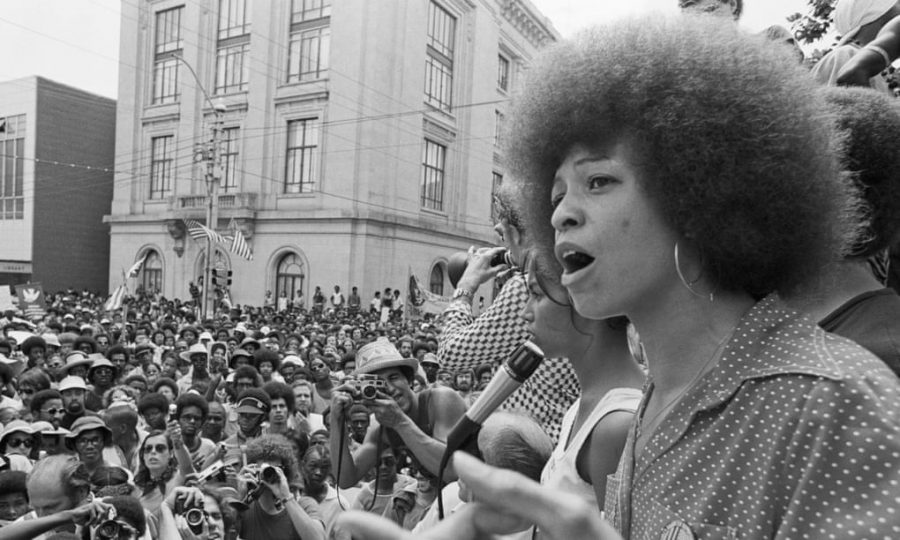Refusal to Be Neutral
Two boys relax on the couch, overwhelmed by the intense, mid-day, July heat. The news is on and a reporter covers a heart-wrenching story. Another man is hospitalized— victim to a vicious hate crime. “How could anyone do something like this,” one boy exclaims. “Everyone is the same. I don’t see color; you could be blue for all I care!” It would appear there is nothing wrong with what he said. Who in their right mind opposes equality? He might have the right intentions, but there is faulty execution. To disregard race completely and to treat everyone neutrally is to disregard both the individual and generational struggles of marginalized groups. Neutrality is not only ineffective when working towards the goal of equality for all, but it is frankly detrimental in our modern world— a world where countless people have historical contexts worthy of careful consideration.
With absolutely no biological significance, the concept of race has grown to dominate today’s discussions with its social significance. Although race is a phenomenon that is just “skin-deep”, it has incredibly strong implications in the lives of many people. The United States, for example, a global superpower, has a glaringly ugly history with race. Each lash an African-American suffered over decades of oppression; each Chinese individual turned away from the country under the Chinese Exclusion Act; each Native American village decimated; each horrifying lynching; each person that was racially profiled; each slur hurled; each threat made— all combine to create a vast, unavoidable context for today’s issues. Many people wake up each morning, starting their day at a disadvantage because of their race and their country’s history with race. So yes, there is something dangerously wrong with the boy’s statement. There is simply too much history to take into account— too much history to “not see color.”
“Don’t run away from your problems, face them head-on.” We have all heard this piece of advice from one person or another and it applies remarkably well in the context of race relations. Although some may not realize it, staying neutral when it comes to race is essentially “running away from the problem.” On the other hand, being sensitive to the experiences of others and treating them accordingly, would be the equivalent of “facing the problem head-on.” Take the state of homelessness in America for example. No one would expect treating everyone equally (people with and without homes alike) in hopes of the problem “working itself out” to be an effective plan of action. Clearly, the homeless require more attention and aid due to their past and current circumstances. Specifically, they need food, water, and help acquiring jobs. Likewise, an endangered species deep in the Amazon Rainforest cannot expect to be saved by treating every species neutrally. Prioritizing one species over another, in this scenario, does not mean that the others are worthless, but rather that the endangered species need special care due to their predicament. Staying neutral simply does not get the job done. Similarly, taking a neutral position on race perpetuates imbalance. Ignoring race and treating everybody equally does nothing to combat racism itself. Certain communities require specific aid and attention due to their complex history which includes everything from Jim Crow to housing discrimination. Showing partiality to a community, in this case, does not come from a place of discrimination, but rather awareness.
Despite this, some argue that there is an obsession with race and that this obsession will only impede our progress as human beings. They may insist that the topic of race is incorporated into too many discussions and that we simply need to live “colorblind” if we ever want to put racism behind us. While there may be some merit to the assertion that race is often brought up in places where it has no relevance, it is ignorant to conclude that “colorblindness” is the way to go. Not seeing somebody’s race could very well be ignoring an essential part of their identity. A quote from the heartbreaking, yet inspirational movie The Hate U Give (2018) has stuck with me years after seeing the movie. When confronting her white boyfriend who unwaveringly insists that he loves her regardless of her skin color, the African-American protagonist, Starr Carter, exclaims that “if you don’t see my blackness, you don’t see me!” Despite the grounds it creates for discrimination, race often contributes to the creation of a community, culture, and closeness between its members. And who are we to ignore that?
It is up to us to find better ways to combat inequality and challenge the status quo. Assessing personal contexts and catering to individuals accordingly is necessary to promote meaningful change. Certain groups need to be favored to promote equality, even if an unconventional path may be necessary. Certain groups have experienced far too much to resort to “neutrality.” Certain groups have been subjected to too much hate. Neutrality simply does not cut it. So let’s sharpen our knives, and find something that will.


